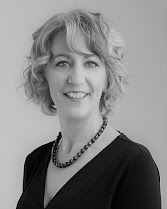By Dr. Kimberly Osborne (IACEHOF 2023)
 |
| Dr. Kimberly Osborne |
In a world marked by increasing polarization, rapid technological transformation, and mounting global uncertainty, the field of adult and continuing education stands at a pivotal crossroads. More than ever, we are being called not only to educate but also to lead.
As a Hall of Fame member with experience across academia, international institutions, and public service, I’ve witnessed how the demands placed on adult learners—and those who serve them—have shifted dramatically. These aren’t simply incremental changes. They reflect a broader transformation in how we live, work, and relate to one another in a deeply interconnected world. Navigating this complexity requires a different kind of leadership—one rooted in consciousness, adaptability, and an unwavering commitment to human development.
Traditional leadership approaches, anchored in predictability and control, are insufficient for addressing today’s fluid and often ambiguous realities. What we need now is what I call conscious leadership: the capacity to lead with self-awareness, humility, and a deep understanding of interconnected systems. This form of leadership sees beyond the boundaries of institutions or disciplines and embraces the ambiguity that defines modern life. In adult education, this kind of leadership is not optional—it’s essential.
Across the globe, educators and institutions are feeling the impact of this shift. The rapid acceleration of artificial intelligence (AI) presents opportunities and threats, particularly regarding access, equity, and the preservation of human wisdom in learning. While AI may automate certain tasks or offer new efficiencies, it cannot replace adult education's relational and reflective dimensions. In the face of this technological surge, adult educators must lead with discernment, guiding learners in how to use technology, question it, critique it, and understand its broader implications.
At the same time, demographic changes are reshaping who our learners are. Migration, aging populations, and global mobility are producing increasingly diverse learning communities, often marked by trauma, interrupted education, or systemic exclusion. In these environments, responsive leadership is crucial. We must be able to listen deeply, adapt programs with cultural intelligence, and build trust across lines of difference. This requires technically proficient leaders who are emotionally intelligent and socially aware.
The changing nature of work further underscores the need for leadership evolution in our field. As industries transform and traditional job pathways become less stable, adult learners need an education that is nimble, relevant, and rooted in lifelong learning principles. Micro-credentials, modular learning, and cross-sector partnerships are promising innovations—but only if they are implemented with thoughtful leadership that centers learner agency and community needs.
In my work advising leaders and institutions, I’ve seen how the most effective responses to these challenges are grounded in a balance of strategic vision and deep humanity. It’s not enough to be efficient or innovative; we must be wise. We must ask not only “what works” but also “what matters” and “for whom?” This reflective stance is one of the most powerful tools adult educators have, and it should be nurtured at every level of our field.
Leadership development cannot be an afterthought. It must be an intentional, integrated part of preparing future educators and shaping our institutions. That means cultivating leaders who can hold complexity, work across boundaries, and lead with courage. The work ahead is not easy, but it is necessary.
The challenges of our time—climate change, social fragmentation, global inequities—can not be met with yesterday’s solutions. As adult and continuing education professionals, we have the tools and the reach to contribute meaningfully to a more conscious and connected world—but only if we lead.
As members of the Hall of Fame, we have the platform and responsibility to model this kind of leadership. Our experience matters, but so does our willingness to evolve. Now is the time to share our stories, lessons, and boldest questions. The future of our field depends on it, and more importantly, so does the future of our learners.
Dr. Kimberly Osborne is an international leadership advisor and executive coach specializing in strategic communication, conscious leadership, and adult learning. She works with senior leaders, organizations, and institutions globally to navigate complexity and lead transformational change.

